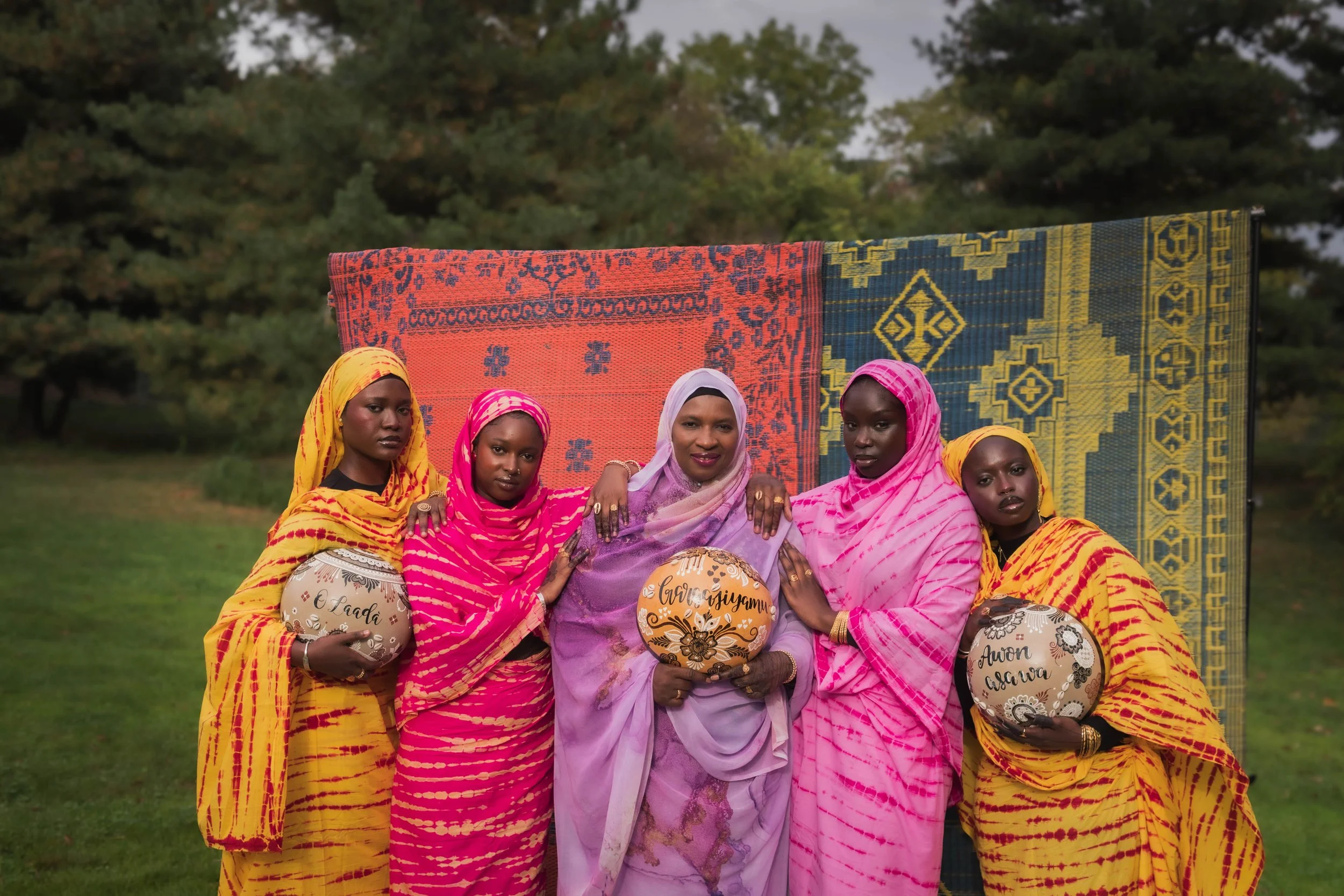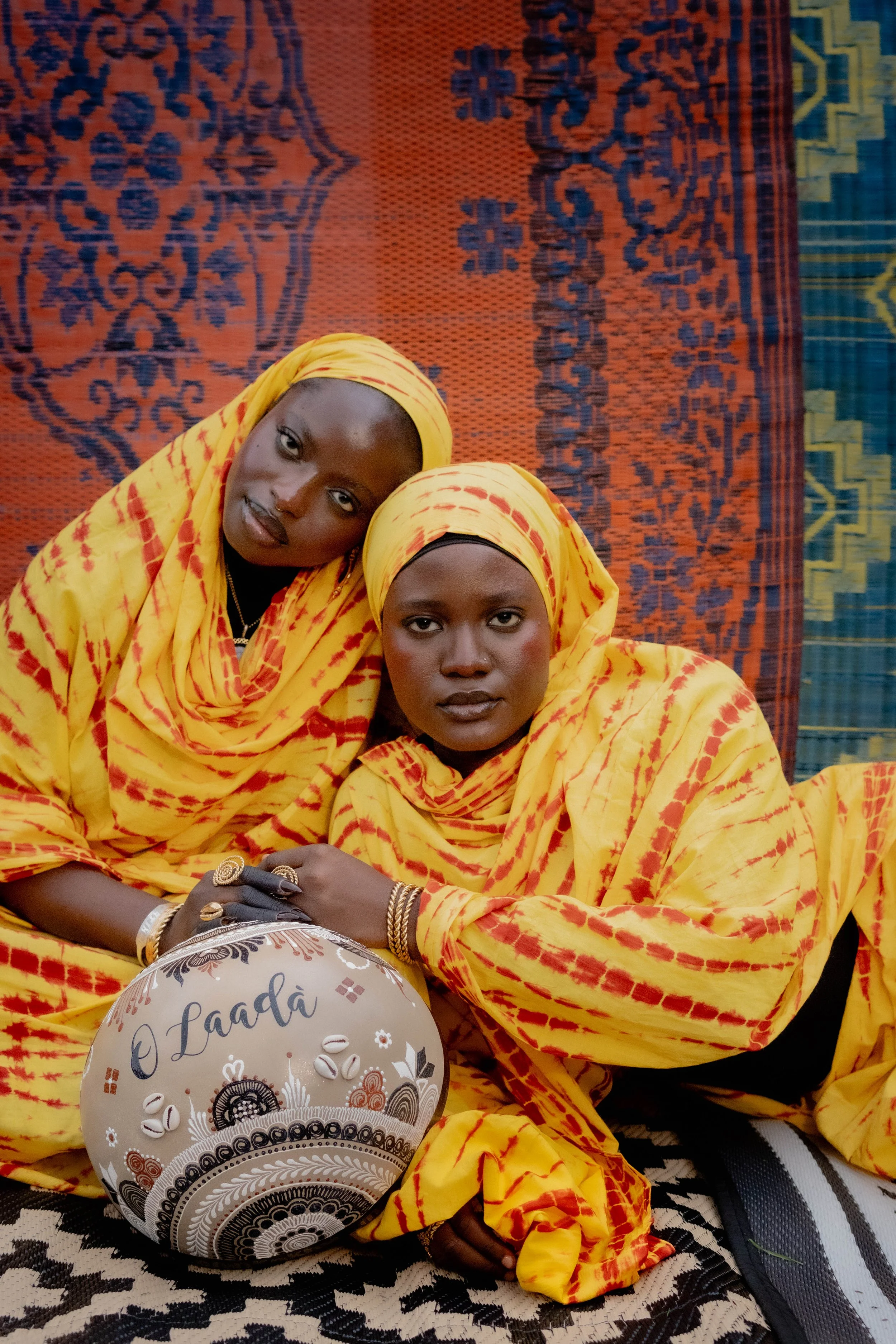Gargajiyamu - An Ode to our traditions
In her latest photography project, Gargajiyamu, photographer and creative director Amirah Ibrahim’s lens traces the threads of heritage across generations and borders. An ode to the culture that shaped the traditions passed down. The project’s name, meaning “our traditions” in Hausa, evokes the languages and lineages that define West African culture. Every frame is deliberate: from the calabashas and bakhoor to the patterns of the lafayas. The imagery draws us into a reality where heritage is felt in every sense. These elements are not just props; they are carriers of memory and identity.
“I wanted something that represented where I come from and everyone around me. My tribes are Hausa and Yoruba, so Gargajiyamu is in one of the languages I grew up speaking. The shoot is very detailed, very intricate. Every single detail from the calabashas to the henna to the clothing. Everything is on purpose.”
‘Our traditions are not relics of the past, but living, breathing parts of who we are'
The models, originating from Senegal, Ghana, Togo, and Mali, converge in this project not simply to display clothing, but to reveal connections that transcend borders. Patterns that appear in Ghanaian clothing are seen in Nigeria and Guinea; rituals like tea, ataya, or shay, become shared acts of cultural memory. Even seemingly small elements, like the henna used or jewelry worn, are chosen with intention, reflecting the care with which West African women have historically preserved culture.
“I think culture is very sensitive; it was taken from us and had to be incorporated back into our daily lives, Once I saw people were engaged in this topic, I knew I needed to tell it to more people. We need to embrace our culture, even older generations understand it, and we need more people to have these conversations.”
Intentionality guided every aspect of Gargajiyamu. The project was realized through collaborations with Black Muslim women-owned brands. The Melfas came from Eminent Treasures, jewelry from Kayrafet, henna by Athaare, and calabashes from Meenah Dizigns. Every detail, from adornments to ceremonial pieces, was chosen to carry authenticity, honoring the traditions they represent while uplifting the communities that sustain them.
Beyond the visual details, Gargajiyamu is also a conversation about presence and representation. “We need to make space for ourselves. Even if you don’t think your work is good, showcase it. Someone will see it. You never know who’s watching. At the end of the day, you’re probably inspiring someone else to embrace their traditions, wear their clothing, be proud of where they come from.” In this way, the project becomes more than images; it is a deliberate act of visibility. By highlighting shared practices across countries and generations, Gargajiyamu shows that culture is not limited by borders—it is an evolving, communal force that connects people, families, and communities, carried forward by those who actively engage with it.
‘A visual reflection of heritage, memory, and sisterhood’
Gargajiyamu exists as an act of remembrance, reverence, and continuity. Amirah’s project invites us to witness the living traditions carried by women across generations, showing that culture is not a relic of the past but a breathing inheritance. With this work, she preserves the stories of the past while creating space for future projects that celebrate, amplify, and reimagine West African culture, ensuring these traditions continue to thrive and inspire.
Credits
Photography / Creative Director: @byamirahibrahim
Melfas: @eminenttreasures
Jewelry: @kayrafet
Henna: @athaareco
Calabashes: @meenah_dizigns
Keep up with Amirah










